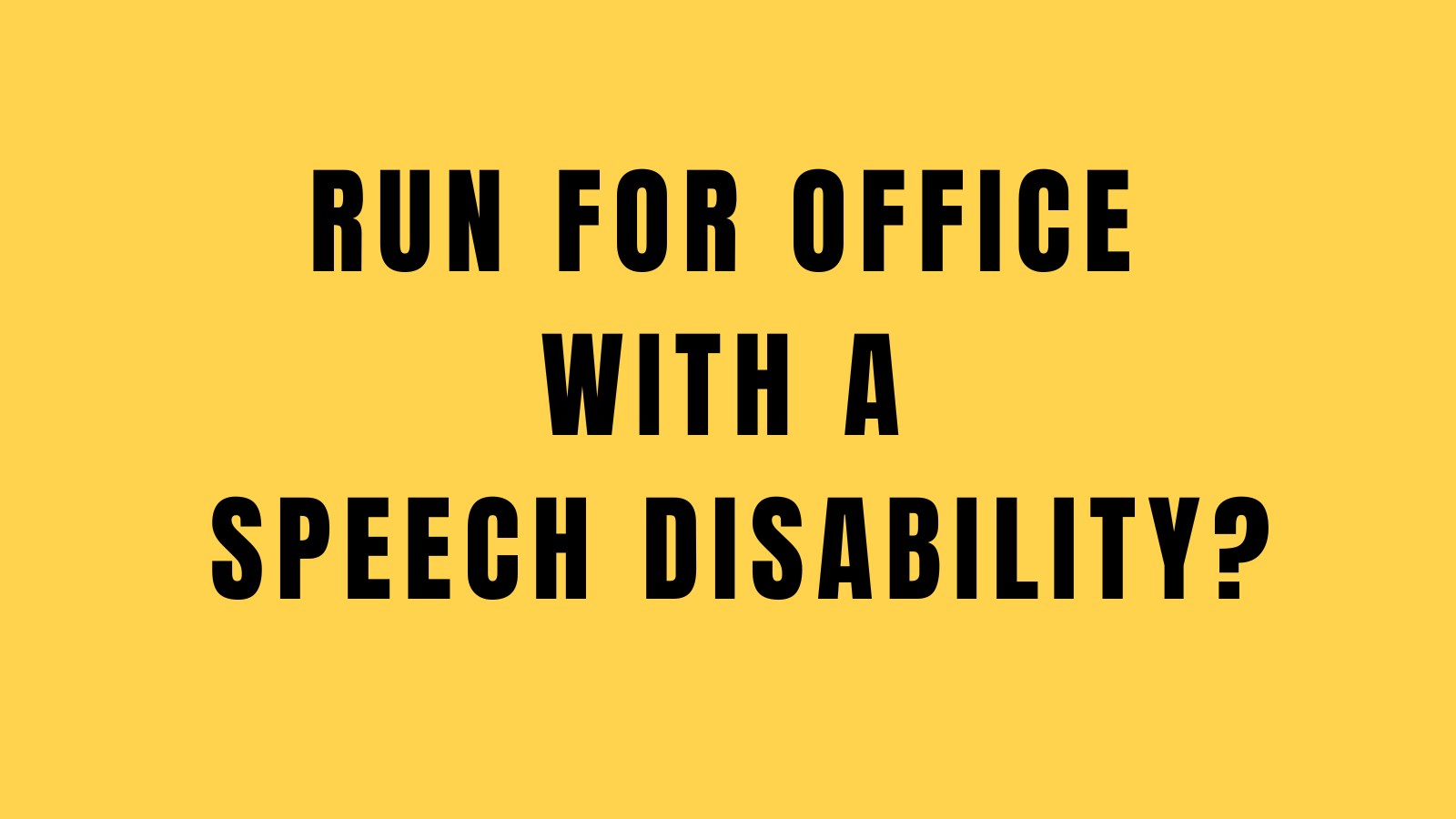
FOR IMMEDIATE RELEASE
CommunicationFIRST joins other disability rights advocates to express dismay at the public and media response to a current political candidate’s communication disability. Over the past few weeks, the media has focused unduly on communication-related accommodations reasonably requested by the candidate, and cast the candidate’s apparent audio processing and speech disabilities as markers of incompetence and unfitness to serve in office. To put the record straight, the use of this technology is no proof of these charges. Indeed, the news media relies on basically the same technology every day to receive and process information.
As the nation’s only nonprofit organization led by and for, and dedicated to advancing the human and civil rights of, people with speech-related disabilities, CommunicationFIRST is no stranger to this. Members of our community face such bigoted innuendos, prejudices, and discrimination constantly. It must be called out and ended, not perpetuated by those in the press hungry for their next gotcha headlines.
We urge responsible journalists to use this as a critical inflection point. Investigate, report, and editorialize on the ways and depth to which children, working-age, and older adults who have communication disabilities are belittled, bullied, institutionalized, isolated, abused, and worse. Report the truth, the whole truth, and nothing but the truth.
We urge the press to also report on how more individuals with communication disabilities are breaking free of this vicious cycle and participating in every facet of American life, including by running for office. In December 2021, CommunicationFIRST hosted a webinar featuring four people with speech-related disabilities who are active in politics, including two who had run for public office. Audio, text, and open-captioned, ASL-interpreted video recordings of the conversation are now available here.
The following are some of its major takeaways:
“I’m not taken as seriously because of my speech disability,” said Sascha Bittner, a San Francisco-based political activist. “And I’m not seen as competent, even sometimes with other disability activists.” Those ableist attitudes haven’t stopped her activism and from pursuing leadership roles in her political party: “You know the old saying about ‘if they don’t give you a seat at the table, bring a chair?’ I already have a wheelchair, so that’s very easy for me to do.”
India Ochs, who ran for her local school board in Annapolis, Maryland, in 2020 observed, “While my speech disability might not have influenced me personally as a candidate, it definitely influenced how others saw me as a candidate, whether it was a positive or a negative reaction.”
Coleman Watson, who acquired aphasia and apraxia after a stroke in 2020, pointed out, “I think people thought because my speech was – the cadence – was not right, I was probably [not] a real candidate. And I think they probably still think that today. But I am.” Watson, who recently lost a primary bid to represent Florida in the U.S. Senate added, “I try to educate other people to say that, look, I do have aphasia, but all of my intellect [is] the same, you know, for many years. The only difference is it’s really [hard to] express my words before I can say it. So I used to have long closing arguments for cases. And I didn’t have to prepare or nothing, because it would just go in my mind. But I’m not the same person now. And so I have learned that I’m trying to use other ways to connect others on aphasia, and myself and others with speech disorders.”
New Jersey-based political activist Angelica Vega admitted, “There’s always the thought behind in my head, saying, What if I mess up this word? What if something came out wrong? But the thing that matters,” she continued, “is our own bodies … we are the change.” When people with speech disabilities run for office, whether they are running for student-led organizations or public office, “it [paves] the way for other people.”
Vega urged other people with speech disabilities, “If you’re thinking about running, run!” India Ochs, a full-time AAC user, agreed. “I do not care where you come from, what kind of disability you have, if any, or how old or young you are: there is nothing more energizing or, dare I say, fun than fighting for what you believe in. So if you want to make change – change that you yourself want to see – jump into the electoral process at any level, whether it is at school or your city or in larger venues.”
CommunicationFIRST urges members of the media to hold themselves accountable in this process by learning more about ableism, communication disabilities, communication equity, and listening to what we have to say.
Watch the conversation about Running for Office with a Speech Disability here: https://communicationfirst.org/running-for-office-with-a-speech-disability/
For more information, or to reach any of the panelists, please contact info@communicationfirst.org.
